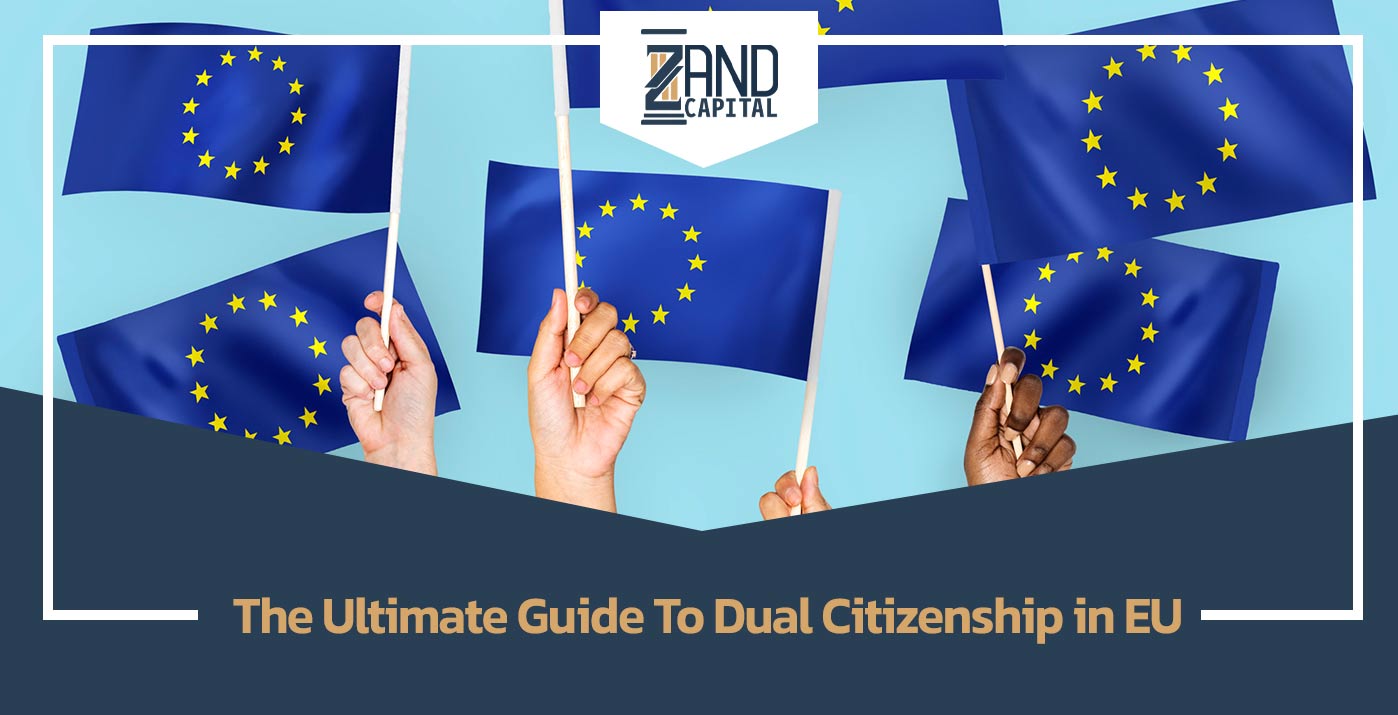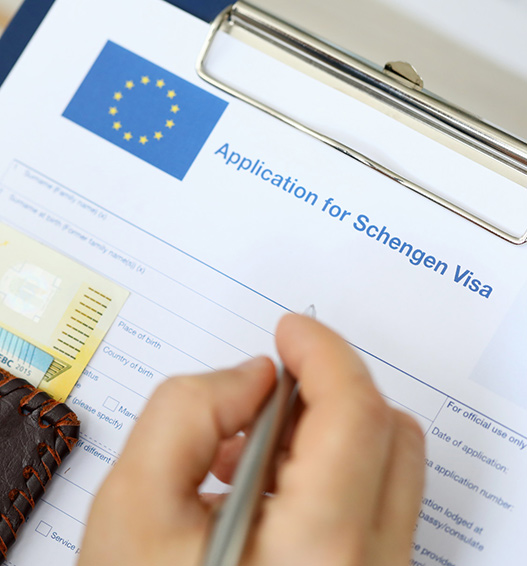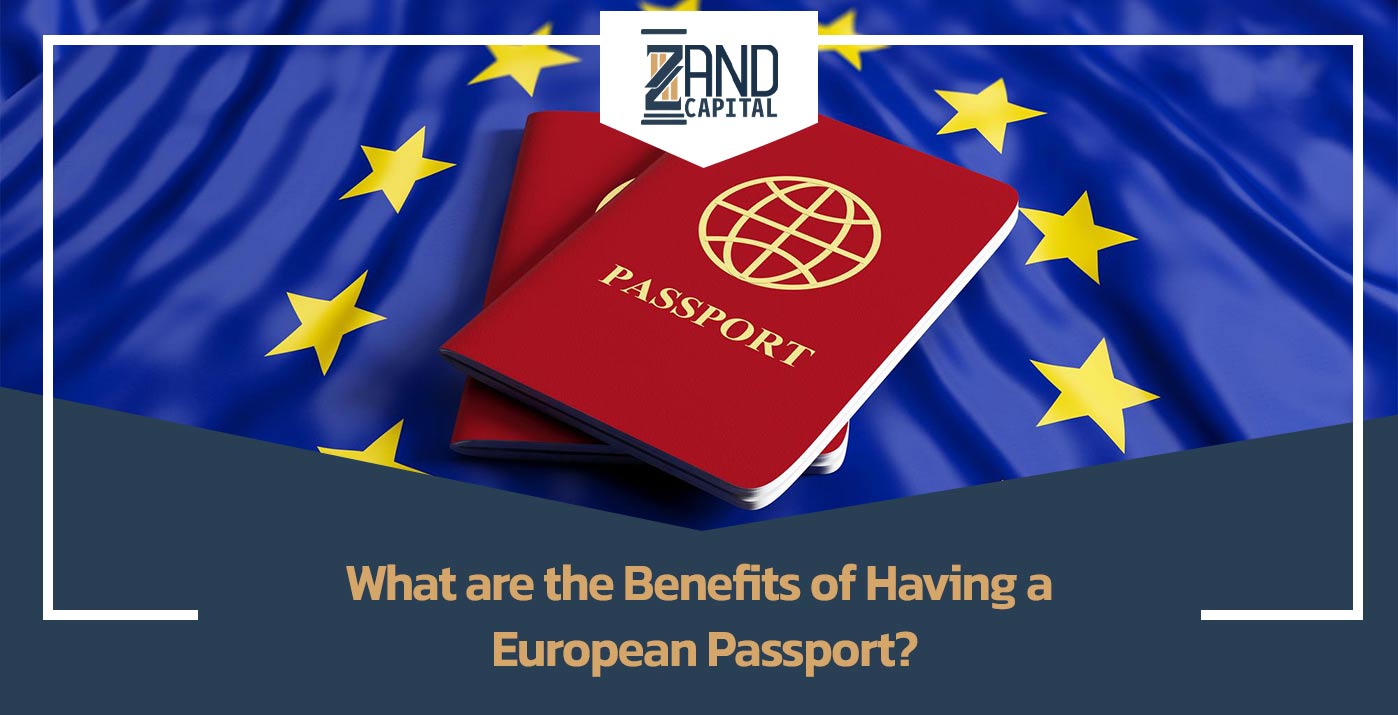The Ultimate Guide To Dual Citizenship in EU
 Auther:
ZandCapital
Auther:
ZandCapital
Are you considering dual citizenship in the EU? Perhaps you want to enjoy the benefits of living and working across borders, or maybe you just want to belong to two different countries. Whatever your reasons may be, getting dual citizenship can be a complex process with its own advantages and disadvantages. But don’t worry – we’ve got you covered! In this ultimate guide, we’ll walk you through everything you need to know about obtaining dual citizenship in the EU. From the different types of dual citizenship available to the requirements for each country, we’ll help you decide if it’s right for you and how to make it happen. So buckle up and let’s dive into this exciting journey together!
What is Dual Citizenship?
Dual citizenship is a legal status that allows an individual to hold two nationalities simultaneously. It means being recognized as a citizen of two countries, and enjoying the rights and benefits that come with each one. The concept of dual citizenship varies from country to country, depending on their laws and regulations. Some countries allow it by birth or descent, while others require applicants to go through naturalization processes.
Dual citizenship can have many advantages, such as the ability to live, work or study in both countries without restrictions. It also offers more travel opportunities and enables individuals to vote or participate in political activities in both places. However, dual citizenship also has some potential drawbacks. For example, certain countries may impose taxes on their citizens regardless of where they reside or earn income. Additionally, having multiple passports can raise security concerns for some governments. Whether dual citizenship is right for you depends on your personal circumstances and goals – so be sure to weigh all the pros and cons before making any decisions!
The Different Types of Dual Citizenship
There are different types of dual citizenship, and they depend on the laws of a country. One type is where an individual can be a citizen of two countries at the same time, with neither country requiring them to relinquish their other nationality. Another type is where one can hold citizenship in more than one country by birth. This means that if a person is born in a country that allows for birthright citizenship and has parents who are citizens of another country, then the person can have dual citizenship. In some cases, individuals may acquire dual nationality by marrying someone from another country. This process usually involves living within the foreign spouse’s home nation for a certain period before applying for citizenship.
Additionally, there’s also an option for naturalization or obtaining legal residence status through investment programs offered by some countries. These allow foreigners to invest in real estate or other ventures to gain residency rights which could eventually lead to full-fledged citizenship over time. Understanding the various types of dual citizenship is important as each category comes with its own set of rules and regulations. It’s crucial to research extensively and consult professionals before deciding what route best suits your interests and needs.

Pros and Cons of Dual Citizenship
There are both advantages and disadvantages to holding dual citizenship. One of the main benefits is that it allows individuals to enjoy the rights and privileges afforded by both countries. For example, they can work, study, and travel freely in either country without restrictions. Another advantage is that having a second passport can provide greater flexibility when it comes to tax planning, estate planning, and asset protection. Dual citizens may also be able to access more favorable investment opportunities or social welfare programs in each country.
On the other hand, there are also some downsides to dual citizenship. For instance, it may lead to conflicts of loyalty between two nations during times of war or political unrest. Additionally, dual citizens may face additional bureaucratic hurdles when dealing with government agencies in both countries. Moreover, some countries require their citizens living abroad (including those with dual citizenship) to pay taxes on their worldwide income.
This means that if one holds two passports from high-tax countries like the U. S., they could end up paying double taxes on their earnings. While there are certainly benefits associated with obtaining dual citizenship in EU member states such as Portugal or Malta among others; individuals should carefully consider all factors before pursuing this path.
How to Get Dual Citizenship in EU?
Getting dual citizenship in the European Union can be quite a complex process, but it is definitely worth it. There are different ways to obtain dual citizenship depending on the country you choose to apply for. One way to get dual citizenship is through ancestry. If one of your parents or grandparents was born in an EU member state, you may qualify for citizenship by descent. This means that you will need to provide necessary documentation such as birth certificates and marriage licenses to prove your lineage.
Another option is naturalization, which involves living in an EU country for a certain period of time before being eligible for citizenship. Each country has its own specific requirements regarding residency and language proficiency exams. Additionally, some countries offer investment-based programs where applicants invest a certain amount of money into the economy in exchange for citizenship. This can include buying property or investing in businesses within the country. Obtaining dual citizenship requires careful research and planning. It’s important to understand each country’s specific requirements and eligibility criteria before applying.

What are the Requirements for Dual Citizenship in EU?
To obtain dual citizenship in the EU, individuals must meet certain requirements. These requirements vary depending on the country, but there are some general guidelines that can be followed.
Firstly, it’s important to note that most EU countries require applicants to have a connection to that country. This could include being born in the country or having family members who are citizens of the country.
Secondly, many countries require applicants to have lived in their territory for a specific period of time before they can apply for citizenship. This is usually around 5-10 years and may involve showing proof of employment or education during this time.
Thirdly, applicants will need to pass language and/or history tests proving their knowledge and understanding of the culture and customs of the country they wish to become citizens of.
It’s important for applicants to show proof that they don’t pose a threat to national security or public order.
Obtaining dual citizenship in the EU requires patience, diligence and an understanding of each individual country’s specific requirements.
Alternatives to Dual Citizenship in EU
While dual citizenship can provide many benefits, it may not be the right choice for everyone. Fortunately, there are alternatives to consider if you want to establish a stronger connection with another EU country. One option is permanent residency. This allows you to live and work in the country without being a citizen, but also provides more stability and security than a temporary visa. You can usually apply for permanent residency after living in the country for several years. Another alternative is obtaining an extended stay visa or long-term visitation permit. These visas allow you to stay in the country for longer periods of time without needing citizenship or permanent residency status.
You could explore ancestry options if you have ancestors from an EU country. Some countries offer special programs that grant citizenship based on ancestral ties, which can be easier and quicker than traditional naturalization processes. There are various alternatives available if dual citizenship isn’t feasible or desirable for your situation. It’s important to research each option thoroughly before making a decision that best suits your needs and goals.
Conclusion
Obtaining dual citizenship in the EU can be a complex process that requires careful consideration of all requirements and restrictions. However, having dual citizenship can bring many benefits such as increased travel opportunities, access to more job markets and social benefits. Before applying for dual citizenship, it is important to research thoroughly about the country’s laws and regulations regarding nationality. It is also advisable to seek legal advice from an expert on immigration law or a qualified consultant who specializes in dual citizenship applications.
Remember that while some countries may have more relaxed requirements for attaining dual citizenship than others, each case is unique and may vary depending on individual circumstances. With the right information at hand and proper guidance throughout the application process, anyone can successfully attain their dream of holding two nationalities within the European Union.




